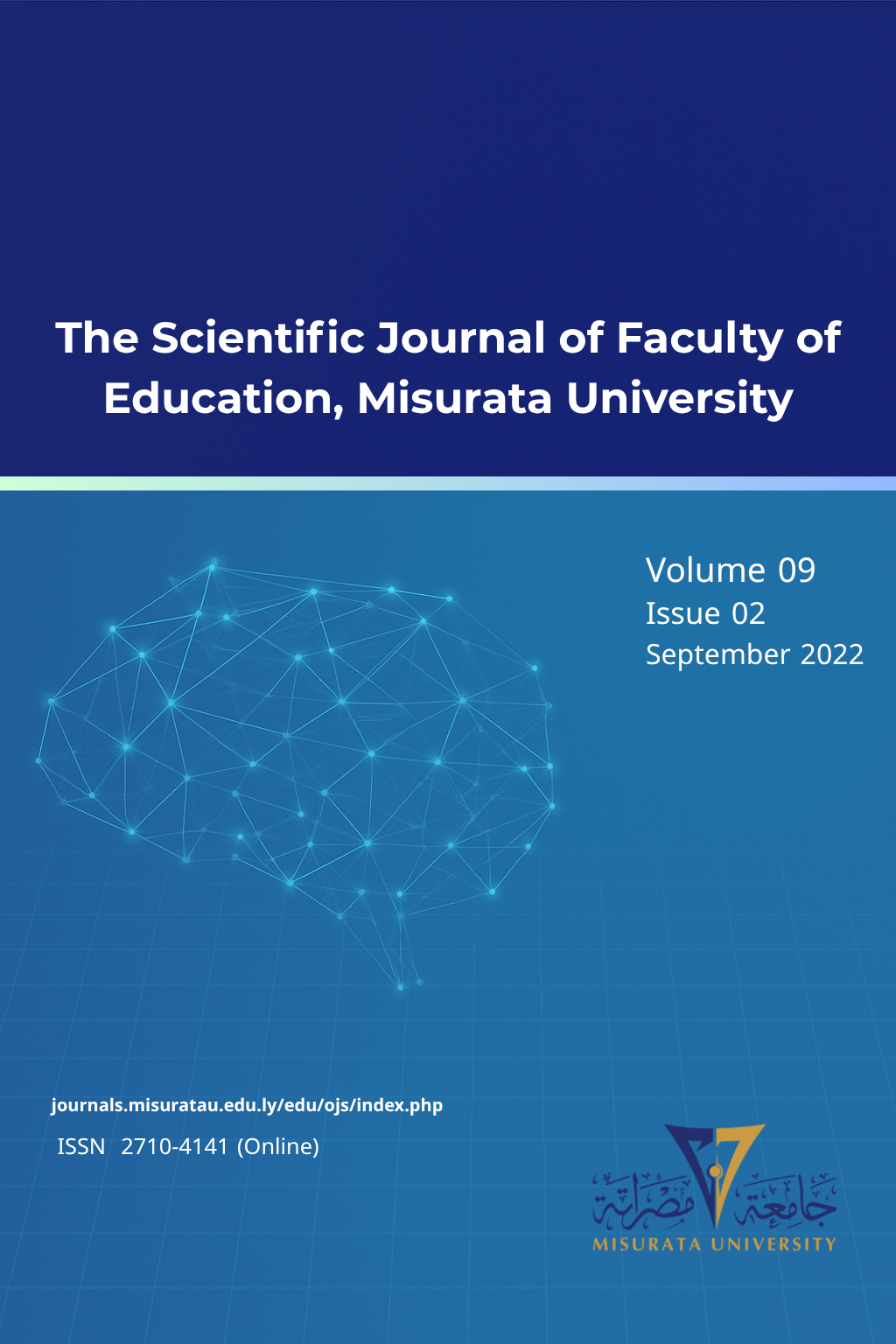Examples of the directives of the shamma,I origins, the problem of syntax, a describtibtive study
Keywords:
listening, shaping, directing, grammatical rulesAbstract
<> The study aimed at reviewing examples of listening that are allegedly in violation of grammatical rules and through which it is possible to answer this question:is it in the qurayat in the noble hadith and in tha words of the eloquent arabs? The answer is that some ancient and later people have claimed that in some of the hearing of the jinn is contrary to the grammatical rules and there is a hearing of water that appears to be aproblem of syntax and the mail is born it was stated in violation of the grammatical rules and another goal is afeature of what the forerunnwrs wrote in this aspect and to increase the clarification of what the teachers wrotegrammar, and also reveals the sayings ofscholars in the models studied inthis research, and the reason for choosing the topic is to seek to solve a problem related to grammatical listenirg. as well as spreading culturaland linguistic awareness. Hearing has three completing the Qoran, and l stuied in it twomodelsof Qoranic listening the frst: wlidh sections, which are the words of god almigohti These two are sorcerers" and the second: "Those who believe and those who are jews, sabeans and Christians are those who believe in god and the last day." And I discussed the second section, which is the words of nabih. Beace be which is his saying pleace and blessings beuponhim to aisha-may god be pleased with her. first you are led by those who had a new are of infidelity. The kaaba was built on the foundations of abrahabm. a and it contains two examples of listening to the sayings of saying of the poet it was as if a salaf was from the house of ras her mood is honey and manna and manna and the arabs and it is the the second is today you are slandering us and slandering us so go what is wrong with you and the dwrong with you and the days are wonder.










